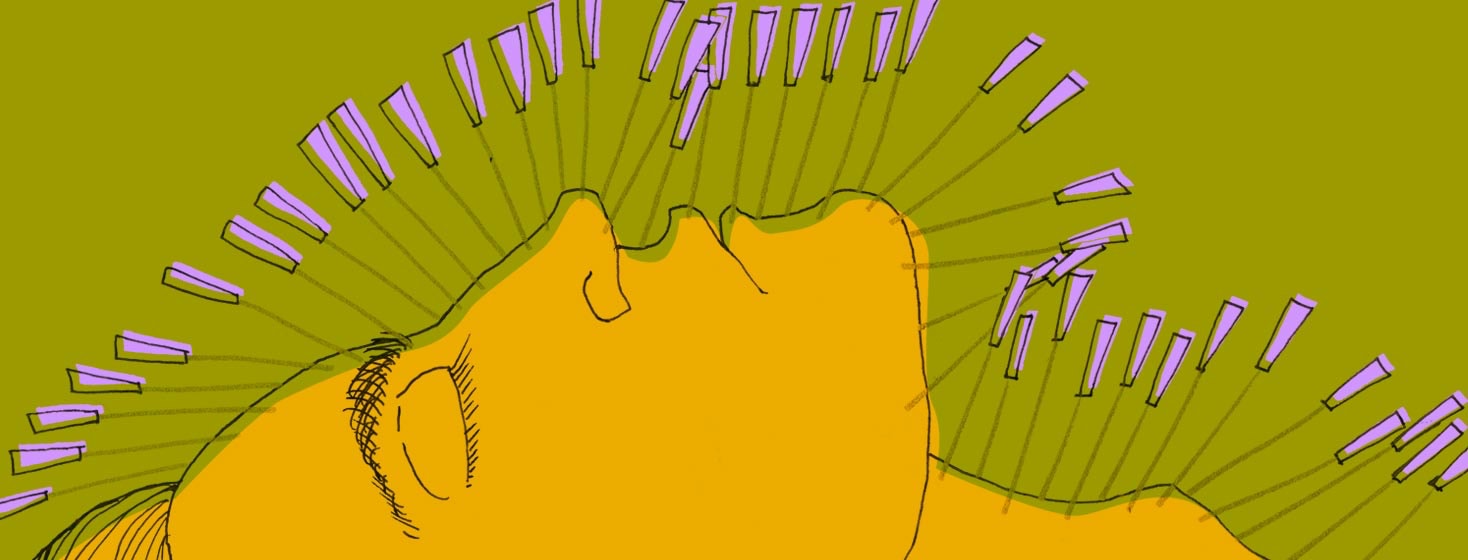Community Views: Acupuncture
Living with psoriatic arthritis (PsA) means living with pain. The inflammation of the joints and connective tissues causes discomfort. You often have difficulty moving.1
Managing symptoms means looking for new options. One alternative treatment is acupuncture. Curious about your impressions, we asked the Psoriatic-Arthritis.com Facebook group, “Have you tried acupuncture to help with PsA symptoms? Share your experience!”
What is acupuncture?
Acupuncture is a Chinese medical procedure. The acupuncturist places needles at specific points in the body. The needle placement varies depending on the purpose of treatment.2-3
Before trying acupuncture, consult your doctor for their advice. It is vital to find a licensed acupuncturist for treatment.2-3
Acupuncture may reduce inflammation and release natural painkillers that our bodies make. Chinese medicine views the needles as balancing energy flow in the body. Western medicine views the needles as stimulating:2-3
- Nerves
- Muscles
- Connective tissue
Symptom management
The goal of acupuncture is to reduce pain. Acupuncturists train extensively in needle placement for different types of pain. Along with other health conditions, acupuncture is used to treat:2-4
- Headache
- Nausea
- Pain in the lower back
Broad clinical studies have not found evidence for the use of acupuncture to treat PsA symptoms. However, some individuals with PsA do find it helpful.2-4
Several of you shared how it reduces your PsA symptoms:
“It helps tremendously, easing my joint pain and fatigue.”
“My pain level and swelling are greatly reduced. One finger was triggering, and it’s stopped.”
“It really helped my body relax. I also have problems with my left hand to the point where I could barely move it. Acupuncture helped ease that.”
As with any treatment, acupuncture does not help everyone. Several of you shared not gaining any benefit from it.
“It didn’t work for me.”
Consistency is key
If you can, commit to several sessions to help you figure out whether acupuncture is right for you. Consistency in treatment helps determine success. A couple of sessions each week for several weeks is often recommended. Sessions usually last about 30 minutes.2-3
“I get it every week. It really helps me.”
“Dry needle acupuncture has become a regular routine once I found my latest masseuse.”
“It really helped! It takes some time. It’s not a one-and-done approach.”
Bad side effects
Typically, acupuncture has a low risk of side effects. Having a licensed and certified acupuncturist is critical for reducing risk. Each body is unique and negative effects are possible. A few of you shared your experiences of bad reactions to acupuncture.2-3
“It was the most horrid thing ever. Everywhere they stuck a needle, my body responded with huge red lumps! I hurt for weeks.”
“I actually broke out in hives, and it caused a horrible flare.”
“It triggers a flare for me, but I think I’m the rarity. Massages do the same for me.”
Handling cost
The cost of acupuncture sessions can be high. Consistency in treatment is important, but multiple sessions can add up fast. A single session often ranges from $75 to $200. Some insurance plans will cover part of the cost or a set number of visits. But many insurance plans do not offer acupuncture coverage.2
“I found it helps, but insurance doesn’t cover it, and it can get expensive.”
Thank you
We appreciate everyone who shared their experiences with acupuncture. We gain insight from each of you!

Join the conversation